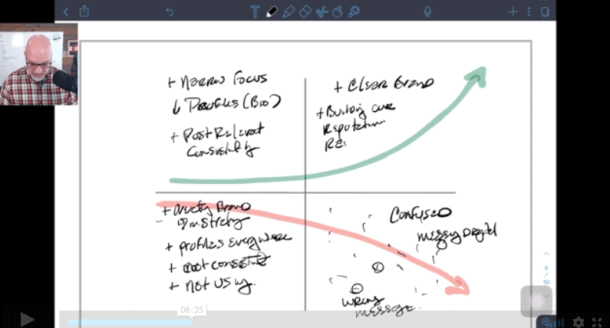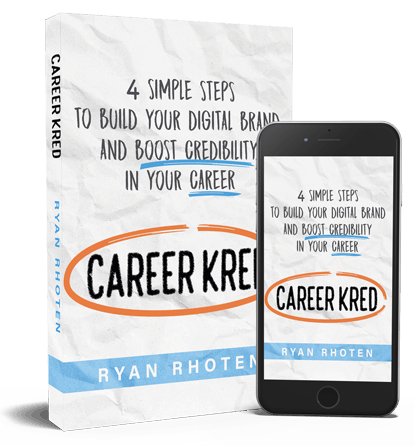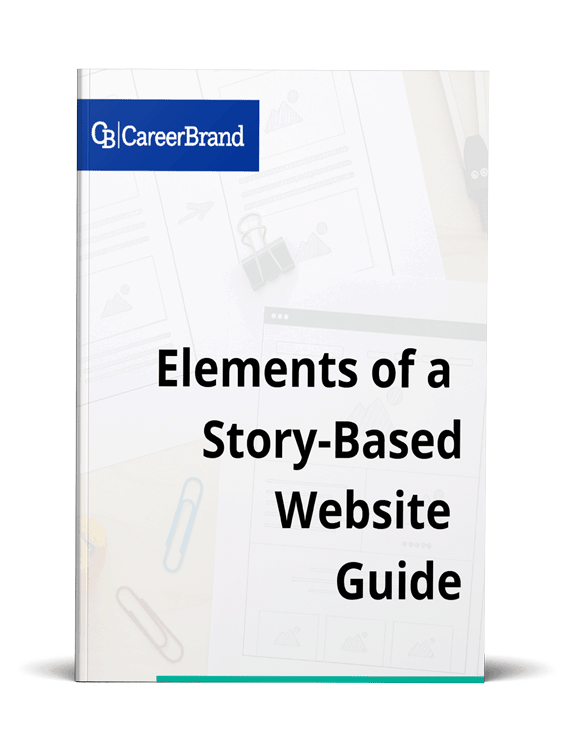This is the fourth installment in a series of posts on becoming the Google of your niche.
You can find the first three posts in order HERE, HERE, and HERE.
In the last post we discussed the different types of content you can create.
This post will discuss the types of content others create and how you can use it to help you become a trusted source on a topic or niche.
In other words, how use can use curation to become the Google of your niche.
CURATION
Before we get started I want to make sure we are on the same page when I refer to curation. If you remember back to part one in this series I offered this definition for content curation.
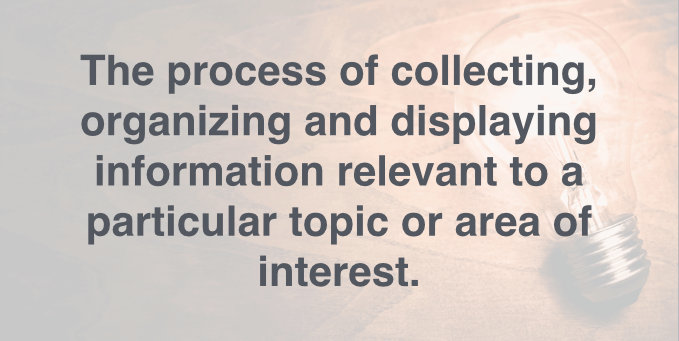
The content I am referring to in this context is content from the thinkers and influencers in your chosen niche.
Do you know who the influencers are for your niche? Write out their names in your favorite word processor or notepad.
Take a few minutes. Can you come up with 20 people in your space you personally look to for information and insights on a particular topic?
Once you have the names begin to actively seek out and collect the wisdom and insights from each of them where ever it can be found.
It may come from their personal blogs, curated blogs (Careerealism), professional blogs (Forbes, Entrepreneur), Twitter, podcasts, videos, maybe even Instagram.
The source matters less than capturing their thoughts and wisdom. We do this for two reasons; education and dissemination (sharing).
Education
In order to grow as a thought leader in your niche you must learn as much of the pertinent information you can on your subject matter. And despite what your sixteen year old child will tell you, it’s not possible to learn all there is to know on any given topic.
This means to “stay on top of our game” we need to be continually learning from those who have insights or experiences different from our own.
If you are not educating yourself on your niche by gaining the perspective of others, you are no longer growing personally or professionally.
This will impact your content because it will eventually grow stale. When this happens your audience will turn to someone else as they no longer hear any new perspectives from you.
You curate the content of others to expand your own thinking and knowledge in order to keep your content fresh and relevant.
Even with fresh and relevant content of your own, you won't become the Google of your niche if you're not sharing what you’ve learned and the content you've discovered.
Dissemination – Sharing
Sharing is a counterintuitive yet critical part of becoming the Google of your niche. I’m sure you’ve heard the saying “he who has the knowledge, has the power”.
There is truth in this statement which is why some managers in corporations (even today I afraid) often guard or “keep close to the vest” information they deem important.
In this way they believe if they are the only ones with the knowledge they are more valuable and thus have the power.
This may have been true at one point in our history however I believe that while having knowledge is powerful, there is far greater power to be gained in sharing your knowledge with others.
[Tweet “Knowledge is powerful. But there is far greater power in sharing your knowledge with others.”]
In fact, in today’s sharing economy, sharing is expected. Social media provides us with an outlet to share the information we collect and organize, with others who are interested in the topic. It does this in a way never before possible which is why it has become so prevalent.
This does however pose a challenge for us.
CHALLENGE
With so much information available, how do we collect all of this content and subject matter knowledge? It’s very easy today to suffer from information overload which Dictionary.com defines as:
“An excess of incoming information that forces one to be selective in the information received and retained.”
So how do you do it? How do you find the needle in the haystack?
The best way to help you cut through the clutter and find the best of the best information available is by using an RSS reader.
RSS READERS
Although I have been using an RSS reader for quite some time, a recent conversation with Todd Lohenry reminded me of the importance of RSS readers when it comes to collecting and curating information.
RSS (Rich Site Summary) often called Really Simple Syndication, utilizes standard web feed formats to publish frequently updated information such as blog entries, news headlines, audio, video.
These RSS feeds enable publishers to syndicate data automatically. This means if you subscribe to an RSS feed of an influencer in your niche, you will receive an update every time they publish a new post for example.
There are many different RSS readers available.
I have used Feedly for many years but based on Todd's recommendation, I am giving inoreader a spin. So far, so good.
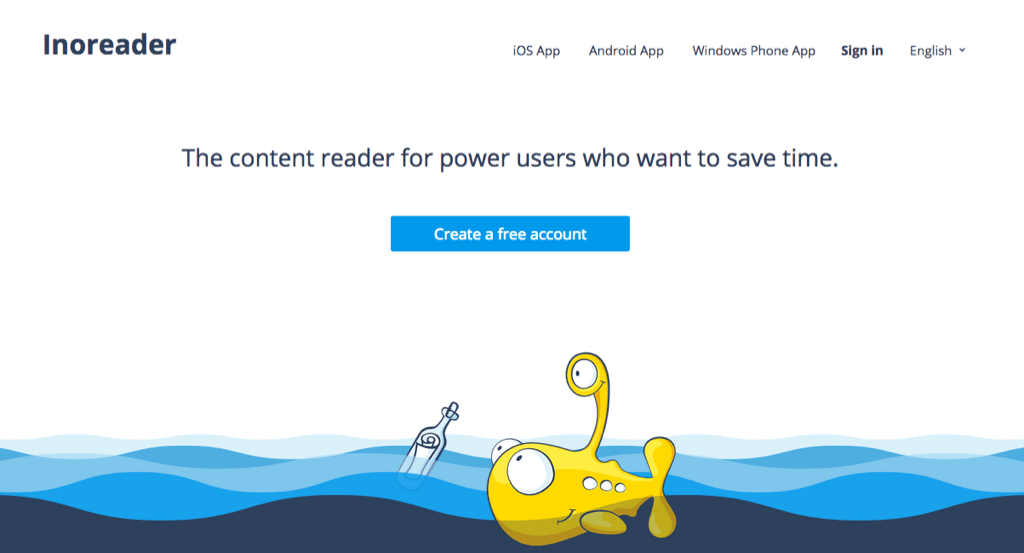
With RSS tools like inoreader and Feedly you no longer need to visit your favorite sites daily to look for new and useful information. Any new information comes directly to you.
This allows you to stay updated as well as decide what information to share with your audience quickly. Tie an RSS reader to other online tools such as IFTTT and you can share information automatically.
I have an upcoming podcast interview with Todd where we discuss how he uses RSS readers and other tools to publish content simultaneously to multiple platforms.
In this way he is providing his audience with the content they need on the platform they use the most.
So stay tuned for Todd’s upcoming appearance on the podcast. You don’t want to miss it.
TRUSTED SOURCE
Think of someone you go to for information on electronics. If you have a question about the latest electronic gadgets, who do call? What if you were trying to decide on a computer to buy?
Did you think of someone? Why did is this particular person come to mind when you read those questions?
Is it because they are knowledgeable on the topic? Maybe they work in the industry. Maybe they are early adopters or maybe they just really love learning and “geeking out” about new technology.
Odds are they are all of the above. They are knowledgable because they curate and read information from influencers in the industry and they share this information with others.
This is why you thought of that particular person. They are your influencer. You look to them as a trusted source of information because they are knowledgable, up to date and they share information freely.
You know when you have a question related to electronics, you’re calling this person because to you they are the Google of their niche.
SUMMARY
We rely on Google to provide us the best and latest information on anything we type in the search bar and we trust the results. Why?
Because Google is constantly learning. Discovering who the influencers are both new and old for any given topic.
Google knows when new and relevant information is available. It indexes (curates) new content and shares the content via it’s search results.
This can be you as well.
You create great content. You’re continually feeding your brain with information (curating) from people you look up to in your area of expertise. You share your information freely with others, especially those in your inner circle.
Eventually you begin to share your knowledge with people outside of your inner circle. This causes your circle to grow. As your circle grows so too will your influence on others.
When this happens it becomes very possible for YOU to appear in a search result for a given topic. At which point you are beginning to become the Google of your niche.
